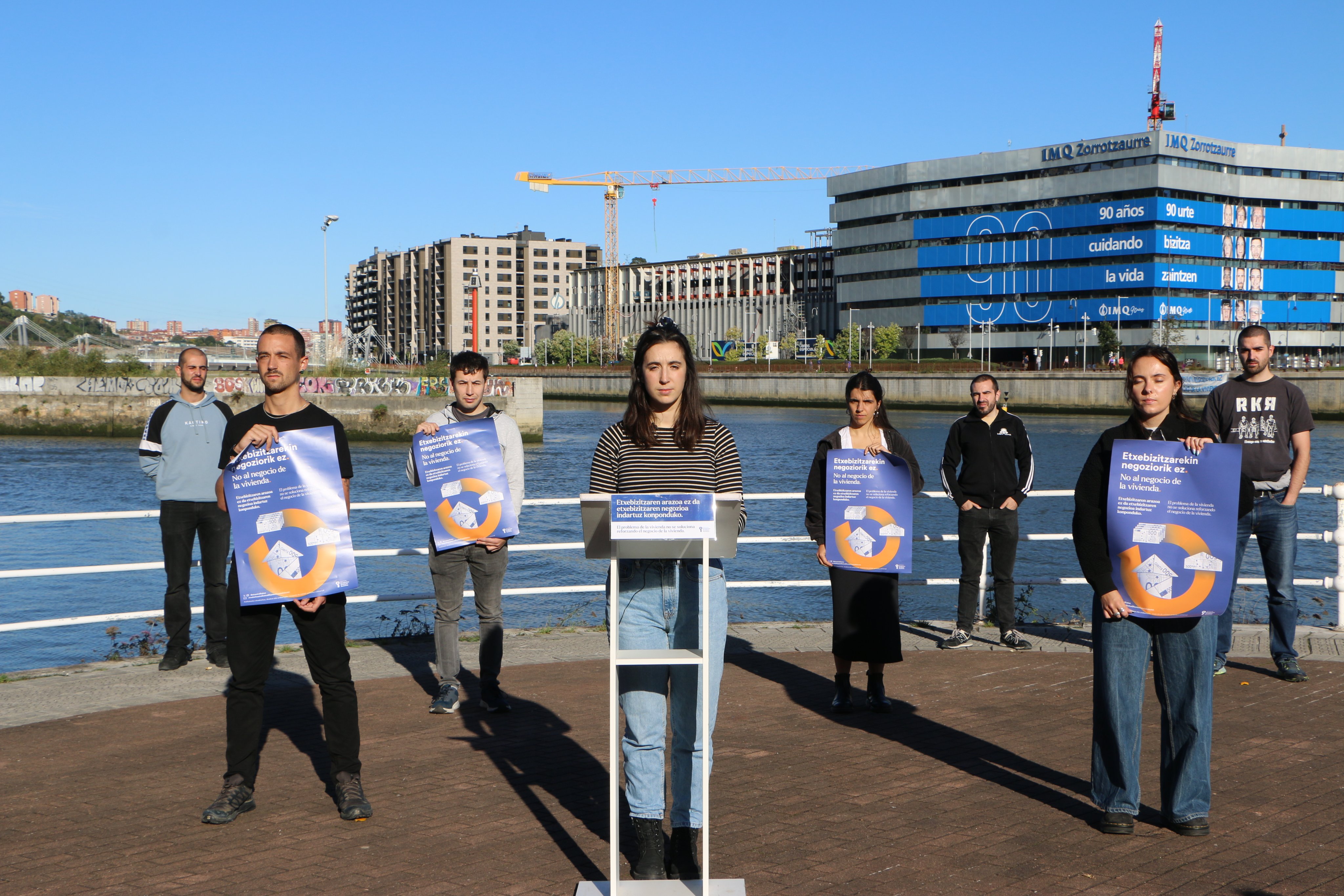
- The Socialist Housing Union of the Basque Country has denounced that the housing problem is due to the housing business. It has confirmed that there is a problem of access to housing, rather than a shortage of buildings. “Housing is used to do business and not to respond to social needs.”

The Socialist Housing Union of the Basque Country has met today on the island of Zorrozaurre in Bilbao to denounce the problem of housing under the motto "not to negotiate with housing". He has described the case as “an element that generates economic and social polarization”, while “generates large profits in a sector of society, accelerating the impoverishment of large strata on the other side”. Union spokeswoman Karla Paisano has pointed out that this issue “also polarizes the parliamentary policy” of Euskal Herria and the Spanish State, although in detail there is “a general consensus to guarantee the profits of the landlords and to increase the process of impoverishment of the broad layers of the working class”.
Politicians have also denounced the existence of a certain framework of understanding “which they impose”. The solution would be to increase the supply of real estate through state resources, which is called “public-private cooperation”. The union has insisted that there is a problem of access to housing in the face of the "other reality" raised by the parties.
Three slogans have been put on the table to solve the housing problem: The global decline in prices, the abolition of mortgage interest and the expropriation of empty and tourist apartments. “The origin of the housing problem is business, so it is absurd to think that if more money and power is given to banks, construction companies and landlords of all kinds, abuses, price rises, racist and classicist discrimination and evictions will disappear. The solution inevitably involves turning housing into a universal right, ensuring its use free of charge and in quality conditions.” The union has insisted on the need to "initiate a great process of mobilization and struggle aimed at free housing".
Living in income ceases to be a generational issue
More and more people are living in rental accommodations. This is confirmed today by the Barcelona Urban Research Institute in its publication “From tenants to owners. Report on the growing inequality in access to property.” According to the study, only 30 per cent of the rented population has some hope of access to property.
Although tenants remain the minority of the population, since 2007 2023.urtera they have increased by 5.2%, reaching 9,500 points. This trend is even more evident in Madrid and Barcelona, where tenants account for 23.7% and 24.9% of the population. In two urban capitals they almost double the percentage: The percentage of homes for rent in Barcelona reaches 44.1%.
In turn, most foreigners live in an income situation: 61.3% of foreigners with EU nationality and 71.6% of non-EU foreigners. The tenant with Spanish citizenship has increased from 9% to 14% in recent years. The data collected in the report reflect a significant increase in the population of tenants in all tranches, except for persons over 64 years of age.
The data also reveal that 75.2% of Madrid rentionists, between 35 and 64 years old, are not considered to have purchasing power of housing.
The report has used the term “renters generation” for the first time to explain the “worsening conditions of access to housing” of a large section of the population. “These conditions take the form of expensive and dangerous incomes, they did not suffer from previous generations,” the Institute said. Among the transformations of recent decades, rental has ceased to be a rite of passage. The average annual wage for rented housing is EUR 22,183, a large part of which is for people with an average salary of EUR 46,725. “Living for rent is a long-term condition and there are many possibilities to extend to old age”